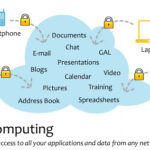The iPad and other tablet computers aren’t laptops and they aren’t smartphones, so many people are wondering why they’d ever need a new device that sits awkwardly in the middle. You can’t put it in your pocket but it doesn’t have the full capabilities of a “real” computer.
But Apple sold over 15 million iPads in the fourth quarter of 2011, so there must be something good about them. This post will explain some of the things an iPad is great for, and a few for which it is not ideal.
Many describe the iPad (as well as other tablets) as a “media consumption” device. If your core computing tasks are things like checking email, reading news sites and blogs, watching videos, and posting to Facebook and Twitter, then the iPad is perfect. Its sleek design and portability make it great for curling up to read an ebook or watching a movie from Netflix. For avid gamers, the iPad features beautiful graphics and engaging, albeit different, gameplay.
The “Instant On” feature is also quite impressive, as a simple tap of the Home button is all it takes to fire up your device. The iPad 2 also boasts a 10-hour battery life, two cameras to take photos or video chat, and intuitive multi-touch technology that powers every tap you make.
Even though laptops are clearly portable, the iPad takes this to a whole new level. Being much smaller and lighter, it is an ideal personal travel companion. It is also frequently used in workplace settings as an alternative to printing out documents or bringing a bulkier computer to a meeting. An increasing number of companies are choosing to issue iPads to employees in order to boost productivity and move towards a paperless office.
Apple also has big plans to use the iPad to revolutionize the world of education, which I recently covered here on the blog.
Accessing your personal documents in a familiar “My Computer” interface, though, isn’t usually an option. (You can use iCloud or apps like Dropbox to sync and view your files.) And some bemoan the fact that there is no USB or CD/DVD drive. Apple and iPad fans are firm in their belief that the future of computing lies “on the cloud,” and are quickly moving towards this model.
Beyond this, however, there are some major limitations for the iPad and other tablet computers. In contrast to consumption, the “media creation” side of the coin is much more limited. Writing something more substantive than a tweet or status update, for example, can be time-consuming and cumbersome. In addition, graphic designers, music artists, filmmakers, web developers and others with more advanced computing needs will find the iPad insufficient.
Within the tablet world, there is big competition between the iPad and Android devices like the Samsung Galaxy Tab and the cheaper Amazon Kindle Fire. Some tech columnists have also criticized Apple’s closed system of app development and distribution.
Overall, the iPad and other tablets have a lot going for them, and they might be able to completely replace your laptop, depending on what you need to do.
What do you like (or dislike) about the iPad and other tablet computers?




Good article. I’ve been experimenting with an Ipad and plan to get one in a few months when the Ipad3 comes out. I love my MacBook Air, but even it is too bulky and cumbersome to have in all the many meetings I go to each week, and for other things, like traveling to conferences, etc. So, for me getting the Ipad to go along with my Macbook is the answer for now.
Thanks! I definitely think the iPad is going to become more and more standard as a productivity tool in the workplace.
I know a lot of people who use their ipads for planning stuff. Being a teacher, there are millions of deadlines and appointments and meetings, and the ipad will sync that with things from your personal life so you aren’t double booking everything. Also, over winter break I used it mostly to play games–but my friend (who owns it) used it to fiddle with photos and go on the internet, etc. etc. so I can see its uses. I personally was considering buying one for law school, so I won’t have to carry a laptop everywhere, but I could still take notes on it and set appointments while not breaking my back.